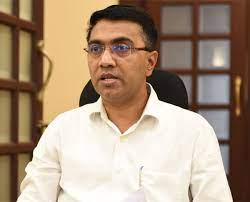PANJIM: Chief Minister Pramod Sawant acknowledged corruption in local governing bodies affects waste management on Friday. He also made clear accusations against some elected officials for their alleged involvement in tampering with funds allocated to village panchayats and municipalities for waste management under the 14th and 15th Finance Commissions.
Sawant claimed to have seen for himself the extent of corruption in the panchayats and municipalities—the main players in keeping Goa clean—in the waste management system.
Some people are unaware that the 14th and 15th Finance Commissions have monies available for trash management. However, some people are highly skilled at stealing from that money, Sawant added.
“I have observed their use of corruption. In the pretext of waste management, Rs 60,000 to 70,000 are withheld, but only Rs 20,000 are really used, the accuser said.
The Goa Waste Management Corporation hosted a one-day stakeholder engagement workshop on waste management, and the Chief Minister spoke at its opening (GWMC).
According to Sawant, some villagers permit industries and hotels to dump rubbish in their communities for their own personal gain, resulting in the development of waste dumpyards.
Sawant raised alarm about the growing number of local landfill yards. “Panjim, Margao, Mapusa, and Vasco had rubbish dumps at first. Today, however, every hamlet has a dump. This is because some villages, in exchange for money between Rs 5,000 and Rs 10,000, allow hotels to dump their rubbish in their territories, the man claimed.
He warned that if such behaviours persisted, visitors would stop coming to his state within the next ten years.
The Chief Minister expressed worry that the rubbish problem is becoming worse despite huge sums of money being spent on waste management.
He cited the approximate Rs 160 crore in yearly waste management expenses made by the Goa Waste Management Corporation alone.
“Aside from that, local organisations like municipalities, village panchayats, and the tourism department also invest money in waste management. Even though, there is still a waste problem. Why? he demanded.
Sawant urged local self-government organisations to address the problem seriously and accept responsibility for maintaining a clean, green environment in the regions under their control.
He said that while the government is prepared to offer resources and technical assistance, municipalities and panchayats would be responsible for maintaining the cleanliness of the regions under their control.
Additionally, he urged the involved parties to take severe action against anyone caught throwing trash on the side of the road or in a public area, seizing their possessions and levying fines.
According to Sawant, the administration is thinking of putting transfer stations in the State’s “waste black spots,” which are areas where individuals frequently dump their trash.







